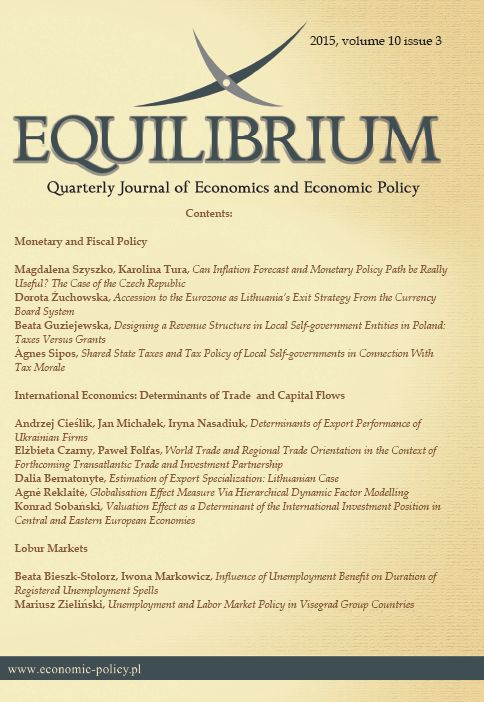Accession to the Eurozone as Lithuania’s Exit Strategy From the Currency Board System
Accession to the Eurozone as Lithuania’s Exit Strategy From the Currency Board System
Author(s): Dorota ŻuchowskaSubject(s): Economy, National Economy, Supranational / Global Economy
Published by: Instytut Badań Gospodarczych
Keywords: Currency Board; Inflation; Euro Adoption; Lithuania
Summary/Abstract: In the years 2004–2014 the Lithuania’s exchange rate policy was based on a rigid currency board system. After a period of uncontested success in the fight against inflation in the first decade of the transition and economic growth, entering the ERM II in 2004 and efforts to adopt the euro were treated as an optimal exit strategy from the currency board system. However, the consequences of this exchange rate system in the following years (until 2014) prevented Lithuania from meeting the economic convergence criteria.The starting point for the research is based on the theoretical analysis of literature studying benefits and risks associated with the use of the currency board system by the monetary authorities. The empirical analysis refers to the case of Lithuania and covers the years 2004-2014. The purpose of this analysis is to look at the effects of the use of the currency board system from the perspective of the convergence criteria of monetary nature and the extent of their implementation in the absence of opportunities for autonomous monetary policy.
Journal: Equilibrium. Quarterly Journal of Economics and Economic Policy
- Issue Year: 10/2015
- Issue No: 3
- Page Range: 27-43
- Page Count: 16
- Language: English

